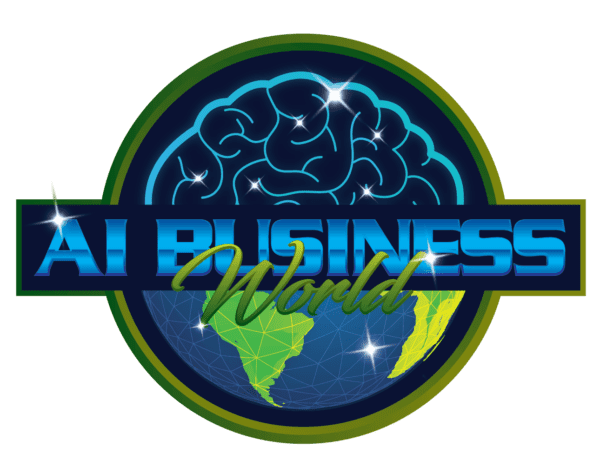Save Time and Money: Automate your Small Business with AI

Business leaders who adopt AI-driven automation are able to position their organizations to thrive in the new business world. The technology not only supports operational efficiency but also empowers businesses to innovate and adapt their strategies swiftly in response to changing consumer needs and industry dynamics.
AI not only is being leveraged by Fortune 500 companies but also by small businesses.
Small businesses are typically price conscious on new software and aren’t as likely as a corporation to leverage AI. Although automation in small business and AI tools can help give SMBs an edge over competitors and become more profitable.
Understanding AI and Business Automation
Artificial intelligence (AI) has become a transformative force in business automation, streamlining business processes through machine learning and advanced data analysis. These technologies enable companies to enhance efficiency, reduce human error, and fuel data-driven decision-making.
- AI in Business: AI refers to systems or machines that mimic human intelligence to perform tasks and can iteratively improve themselves based on the information they collect.
- Automation: Automation uses technology to perform tasks without human intervention. In businesses, automation can be applied to a wide range of processes, from basic applications like scheduling to more complex operations such as customer service.
AI incorporates machine learning, where algorithms are trained to identify patterns and make decisions with minimal human intervention. This capability is particularly useful in handling massive volumes of data, leading to actionable insights and smarter business strategies.
Business processes, such as inventory management, customer support, and personalized marketing, can now be managed more effectively using AI. These processes can self-adjust and learn from ongoing data analysis, making operations more intelligent over time.
Here’s how AI and machine learning come together in business automation:
- Efficiency: Automated systems can work around the clock with consistent performance.
- Scalability: AI systems can handle increasing tasks without the need to proportionally increase resources.
- Accuracy: Leveraging large data sets, AI can greatly reduce the risk of human error.
Businesses exploit these technologies to remain competitive in a landscape that continually evolves. Automation stands as a cornerstone strategy for future-proofing an enterprise, ensuring longevity and relevance in the market.
Automate Your Small Business with AI Customer Interactions

Integrating AI into business operations notably enhances efficiency and customer satisfaction. AI-driven solutions can streamline customer service workflows and deliver personalized experiences based on customer data insights.
Chatbots and Customer Service
Chatbots have transformed traditional customer service mechanisms by offering round-the-clock assistance. Customer service chatbots can handle multiple requests simultaneously, ranging from simple FAQ responses to more complex account management tasks.
- Instant Support: Chatbots provide immediate responses to customer queries, reducing wait times and increasing customer engagement.
- Scalability: They can effortlessly scale to accommodate spikes in support requests without compromising the quality of service.
For handling intricate issues, chatbots can escalate the interaction to human customer support representatives, ensuring seamless service.
Personalizing Customer Experience
AI enables businesses to tailor the customer experience by leveraging customer data to personalize interactions.
- Individual Preferences: By analyzing past interactions and preferences, AI can customize recommendations and services to individual needs.
- Predictive Engagement: AI predicts future customer needs and proactively presents solutions, enhancing the overall experience and customer engagement.
Personalization fosters a deeper connection between the business and its customers, reinforcing loyalty and trust.
Automate Your Small Business with Marketing and Sales Efforts

In today’s market, the implementation of automation in small business and AI has transformed traditional marketing and sales approaches.
Small Businesses can automate tasks now with AI driven tools to obtain actionable insights and enhance customer engagements.
Leveraging Data for Marketing Insights
By harnessing the power of AI, companies are effectively analyzing consumer data to gain deep insights. These analytics enable businesses to generate tailor-made social media posts and product recommendations, fostering a more personalized marketing strategy. For instance, AI algorithms can identify trends and patterns from customer interactions, thus optimizing marketing campaigns to better target potential leads.
AI-Enhanced Sales Processes
Sales teams utilize AI to streamline their sales process with remarkable efficiency. AI facilitates automated lead generation, significantly reducing the time salespeople spend identifying prospective clients.
Furthermore, AI tools enhance the precision of upsell opportunities by predicting customer needs and suggesting additional relevant products or services. These sophisticated AI systems can interact with customers directly, providing real-time assistance and information.
AI in Data Management and Analysis

Artificial Intelligence (AI) has become an indispensable tool in enhancing data management and analysis, offering sophisticated solutions for efficient data handling and strategic insights. Businesses can now leverage AI to streamline operations and support data-driven decision-making.
Advanced Data Entry and Processing
AI-powered systems streamline data entry by automating the input process, reducing the margin for human error, and significantly increasing speed. These systems utilize algorithms that can recognize and process natural language, images, and unstructured data, ensuring that only relevant data is captured. This management of data through AI means businesses can maintain more accurate and up-to-date records, from inventory levels to customer information, leading to more informed operational strategies.
Predictive Analytics for Business Decision-Making
Predictive analytics harnesses AI to analyze vast quantities of data, recognize patterns, and predict future trends. By forecasting sales trends or identifying potential market shifts, businesses can make preemptive adjustments to their strategies. Access to such detailed data analytics equips companies to proactively manage inventory and streamline supply chains. The AI algorithms prioritize relevant data and model numerous scenarios, presenting outcomes that inform strategic decision-making and optimize business performance.
Operational Efficiency With Process Automation

Operational efficiency is paramount in leveraging the full potential of process automation. By automating workflows and ensuring rigorous monitoring and maintenance, businesses can streamline operations and reduce room for error.
Automating Workflows
Workflow automation is the cornerstone of process automation. It involves mapping out existing processes, identifying repetitive tasks, and then implementing software that can handle these tasks without human intervention. As an example, AI-driven lead sorting can categorize incoming queries, allowing sales teams to focus on responding to the most promising leads promptly.
Steps to automate workflows include:
- Define Clear Objectives: Determine which processes will benefit most from automation.
- Select Appropriate Tools: Choose AI platforms tailored for specific workflow needs.
- Gradual Implementation: Roll out automation in phases to minimize disruptions.
Monitoring and Maintenance
Continuous monitoring ensures that automated workflows remain efficient and adapt to changing business needs. It involves regular evaluation and tweaking of AI systems to optimize performance. Effective monitoring spots bottlenecks and inefficiencies, suggesting areas for further automation.
Maintenance is critical and includes:
- Routine Checks: Periodic review of automation tools to ensure they function correctly.
- Updates and Upgrades: Implementing software updates and incorporating new features to enhance process automation.
By focusing on these areas, businesses can maintain operational efficiency through vigilant process automation.
Improving Content Strategy With AI Tools

Incorporating AI tools into a content strategy enables businesses to enhance content creation and optimize for search engines and distribution channels. These tools offer a significant competitive advantage by streamlining the process and improving the reach and impact of content.
Content Creation Automation
AI-powered content automation tools transform how businesses approach content generation. These AI content creation software platforms employ natural language processing (NLP) to understand the context and create content that resonates with the target audience. This elevates content quality as well as growth potential.
SEO and Content Distribution
The role of AI extends to SEO and content distribution, where optimization is crucial for visibility. AI tools also aid in identifying distribution channels that yield the best engagement, ensuring that the content reaches its intended audience, and aligns with the evolving standards of search engine algorithms.
The Future of AI in Small Business

In the transformative landscape of business, artificial intelligence (AI) stands at the forefront, promising to revolutionize how companies operate, innovate, and compete.
Emerging AI Technologies and Applications
Natural Language Processing (NLP): As a core component of AI, NLP technologies are enhancing business communication and customer service. These AI models interpret and generate human-like text, allowing companies to automate customer support and gather insights from unstructured data.
Machine Learning Algorithms: Businesses leverage machine learning algorithms to predict customer behavior, optimize operations, and personalize experiences. These algorithms continuously improve, adapting to new data with minimal human intervention.
Preparing for AI-Driven Growth
Strategic Implementation: Companies must strategically embrace AI by integrating AI technology into existing workflows without disrupting them. A roadmap is essential, detailing how machines and AI systems will complement human workers.
Cultivating Talent: To run and maintain AI solutions, businesses should cultivate a workforce skilled in AI and machine learning. Upskilling current employees and recruiting AI-savvy talent will be crucial to navigating an AI-driven future effectively.
Through these advancements and preparations, businesses are poised to unlock new efficiencies and capabilities in the realm of AI.
Final Thoughts on Automation in Small Business
Artificial Intelligence (AI) represents a significant leap forward in the realm of business automation.
Businesses have the opportunity to harness AI for an array of applications that can lead to enhanced efficiency and productivity. It’s essential to recognize that AI is not a one-size-fits-all solution; it requires strategic implementation.
- Incremental improvements: By automating routine tasks, companies can allocate their workforce to more complex projects.
- Customer interactions: AI-powered tools such as chatbots provide an always-available response system to handle customer inquiries.
Small Business leaders should consider the following when integrating AI:
- Assess current processes to identify areas where AI can have the most significant impact.
- Define clear objectives for what they wish to achieve with AI.
- Choose the right tools that align with their business needs and goals.
- Ensure data quality, as AI systems rely on accurate data to function optimally.
- Monitor and refine AI systems regularly to maintain effectiveness.
Embracing AI in business is an investment in the company’s future. It is important for businesses to stay informed about advancements in AI and continually adapt their strategies to maintain their competitive edge. With thoughtful implementation, the benefits of AI automation can be substantial, leading to not only cost savings and efficiency gains but also to innovative offerings and new business opportunities.
AI will continue to evolve for ways to automate your small business. Small businesses who adopt AI software and systems of automation will be ahead of most of their competitors at this point of time.
This is the biggest business revolution in along time as companies implement AI and automate processes.

